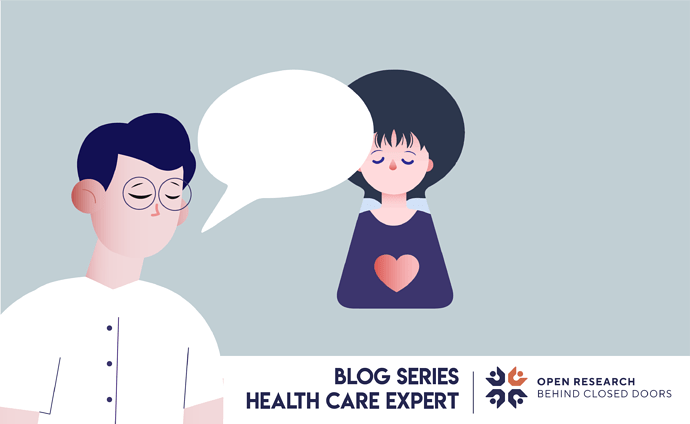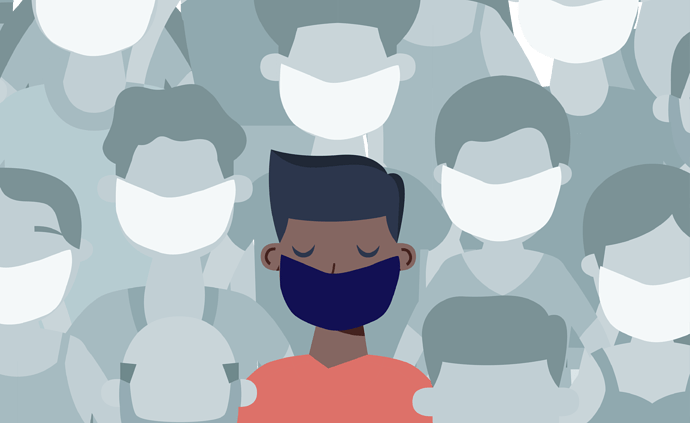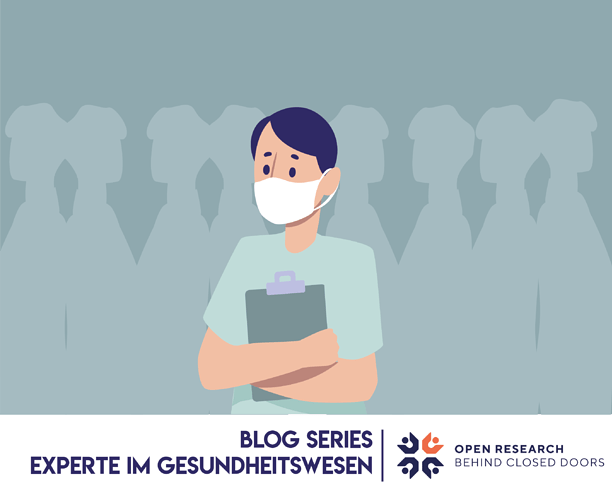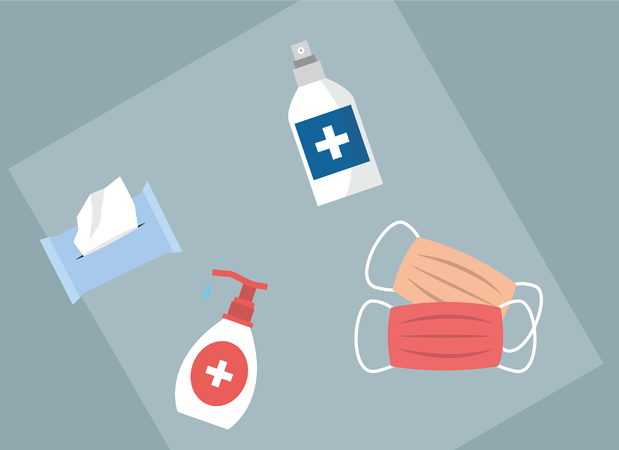The following blog post has been written in German and English. Please scroll down to read the German version. Der folgende Blogbeitrag wurde in Deutsch und Englisch verfasst. Bitte scrollen Sie nach unten, um die deutsche Version zu lesen.
Introduction
Covid-19 has changed the way we interact and live in society. While it affects all of us, its impact is not the same for everyone. Persons with psychosocial and intellectual disabilities deprived of liberty are in a situation of high vulnerability, and their right to health is particularly at risk. The WHO mentioned that in several detention facilities it is hardly possible to practice the physical distancing needed to effectively prevent the spread of the virus. The hazard increases due to the often limited medical care and resources as well as the widespread overcrowding of closed institutions.
The United Nations Convention on the Rights of Persons with Disabilities (CRPD) recognizes the inherent dignity, autonomy, and equal worth of persons with disabilities. The Convention explicitly refers to equal health care for all, and mandates state parties to “provide those health services needed by persons with disabilities specifically because of their disabilities”. This also applies to detention facilities and is even more relevant during the Covid-19 pandemic as detainees depend on the state to guarantee the adequate implementation of measures to protect their lives and physical health. It is also a top priority to ensure access to therapy, as it is a prerequisite for persons deprived of liberty, especially for those with psychosocial and intellectual disabilities, to regain their freedom and to better reintegrate into society after detention.
The current pandemic represents a major challenge for the staff in closed institutions. Despite several well-working measures to mitigate the negative impact of restrictions on detainees, further steps need to be taken. This blogpost addresses the challenges for the accomplishment of the right to health of detainees with psychosocial and intellectual disabilities during the Covid-19 pandemic from the perspective of an Austrian health care expert.
System under Stress
How well a system works can be identified best by subjecting it to a stress test. This is routine in economics and technology, but it is also common in medicine.
At regular intervals, Austrian hospitals hold disaster drills, in which all blue-light organizations are involved at great expense. Apart from the valuable experience for the staff, such drills serve to identify where there are weak points and where improvement is needed.
Now, with the corona pandemic, a disaster has occurred, that is pushing the medical care landscape to the limits of its capacity. The experiences of the first wave of Covid-19 have prompted many hospitals to restructure, in order to withstand the second wave for a longer time. The fact that the numbers of the second wave are so alarmingly high and are likely to cause the care system to collapse after all is due to a mixture of political refusal during the summer and general ignorance of society at large. The government had relied on a sense of personal responsibility (which unfortunately is hardly present in parts of the population).
Keeping distance, reducing contacts, washing hands regularly, wearing masks. These are simple recommendations, that we as responsible citizens can implement if we care about our health and our fellow human beings. Persons in Austrian detention facilities do not have these basic freedoms. Due to the cramped conditions and chronic overcrowding, it is hardly possible for detainees to avoid others. The prison management can cope best by being extremely restrictive with new arrivals, as it is to be feared that a person tested positive of Covid-19 quickly creates a massive cluster in the respective institution. Testing does take place, but it is not the norm, despite the very high vulnerability of this area.
Persons in preventive detention are particularly affected by the pandemic. They too are
afflicted by the overcrowding, especially since the significant increase in admissions numbers
has led to a considerable backlog in the institutions. They wait for several months, sometimes
even years, in regular prisons for their transferal to a specialized facility with a focus on therapeutical treatment, while sharing the rooms with detainees serving their sentences
(which has also been criticized by the European Court of Human Rights).
A further complicating factor is, that some patients cannot be made aware of the dangers of an infection adequately in the light of their psychosocial or/and intellectual disabilities. If they are still in an acute phase where there is no discernment of the disability, the necessity of treatment, or the offense yet, they often struggle with the circumstance of being “unlawfully” detained and then, in addition, maybe being unable to receive visits from relatives all of a sudden.
The Right to Health
The right to health is a human right and it is enshrined in the Austrian Constitution. The state is responsible for the health of its citizens, particularly towards its protégés in closed institutions, who are practically “at the mercy” of the state. If the state locks up its citizens because it considers them to be disabled and dangerous, and it wants to reduce the dangerousness that led to admission by means of therapy in order to ensure their progress after release, then ensuring this should have top priority.
In reality, preventive detention is heavily neglected in Austrian society. The long-awaited reform has been postponed time and again because it is expensive, unpopular, and hard to sell to potential voters. After all, the persons concerned are a small, marginalized group of society without a powerful lobby.
Due to the lack of such a reform, we have to witness how every day more and more people are being admitted to a system that has reached its limit a long time ago. Further, the number of new admissions bears no relation to the number of conditional releases. The reasons for this are manifold and have been described many times before. Three points shall briefly be discussed here.
On the one hand, there are too few expert witnesses of psychiatry to be able to process the number of required assessments of a detainee’s dangerousness adequately and accurately. Uniform quality standards for expert opinions have not yet been established either. Low remuneration is only one point here (and also the only one that the current Minister of Justice wants to deal with in the near future). But also the massive responsibility that rests on the shoulders of the expert witnesses when assessing the dangerousness of a suspect/detainee contributes to the fact that people are more likely to be admitted to preventive detention or to be there for a longer period of time. After distinct tragic incidents in Austria (in this regard the murders at Brunnenmarkt and Lake Neusiedl shall be mentioned), this tendency towards more restrictive decisions has become apparent. This circumstance could be remedied with expert witness commissions, where individual experts are no longer dragged into the media spotlight.
On the other hand, the state does not provide free legal representation for its patients in preventive detention, which could represent their interests before the annual hearings to assess their personal development. Within the scope of the Austrian law on Accommodation, for example, appointing a patient advocate is standard practice, and this should also be the case for preventive detention. This way, however, often one year after the other of the affected persons’ lifetime passes by. Finally, there is a lack of adequate offers for follow-up care after preventive detention. After their discharge from successful treatment, patients need to be accompanied and supported as they re-enter their life in freedom. And although there are already some organizations that offer such support, places are still far too scarce.
Quo vadis?
The system of preventive detention was hence already affected beyond the limits of its resilience before the Covid-19 pandemic occurred. A stress test, as it is now enforced by external circumstances, therefore only brings these gaps to light more painfully. The already small progress in the area of release has almost come to a standstill, as the therapeutic program has to be reduced due to the hygiene requirements (and due to numerous sick leaves). Meanwhile, admissions continue unabated and the backlog is getting bigger. Accordingly, the patients’ state of health is declining.
“Success stories” on the part of the judiciary mainly refer to the fact that new places within preventive detention are being created and facilities are being expanded or rededicated. The focus of efforts should, however, lie on a significant reduction of the number of detainees in preventive detention.
Austria’s system of preventive detention is currently undergoing a real-time disaster drill with very real consequences. The first step to be drawn from this conclusion has to be the prompt implementation of the planned reform.
Author: Dr. Thomas Memmer
• Specialist for Psychiatry and Psychotherapeutic Medicine
• Head of the Ward for Forensic Acute Psychiatry at the Penzing Clinic in Vienna
• Working as an independent practitioner
• Visiting Professor at the Medical University of Vienna
• Member of the scientific advisory board of the SiM association (Self- and Interest
Representation for the Implementation of measures)
www.psychiatrie-memmer.at
Disclaimer: This blog post was written by a health care expert. The content represents the author’s individual experience and perspective. The opinions stated in this article are the author’s own and do not reflect the views, overall findings or conclusions of the project ‘Open Research Behind Closed Doors’ .



